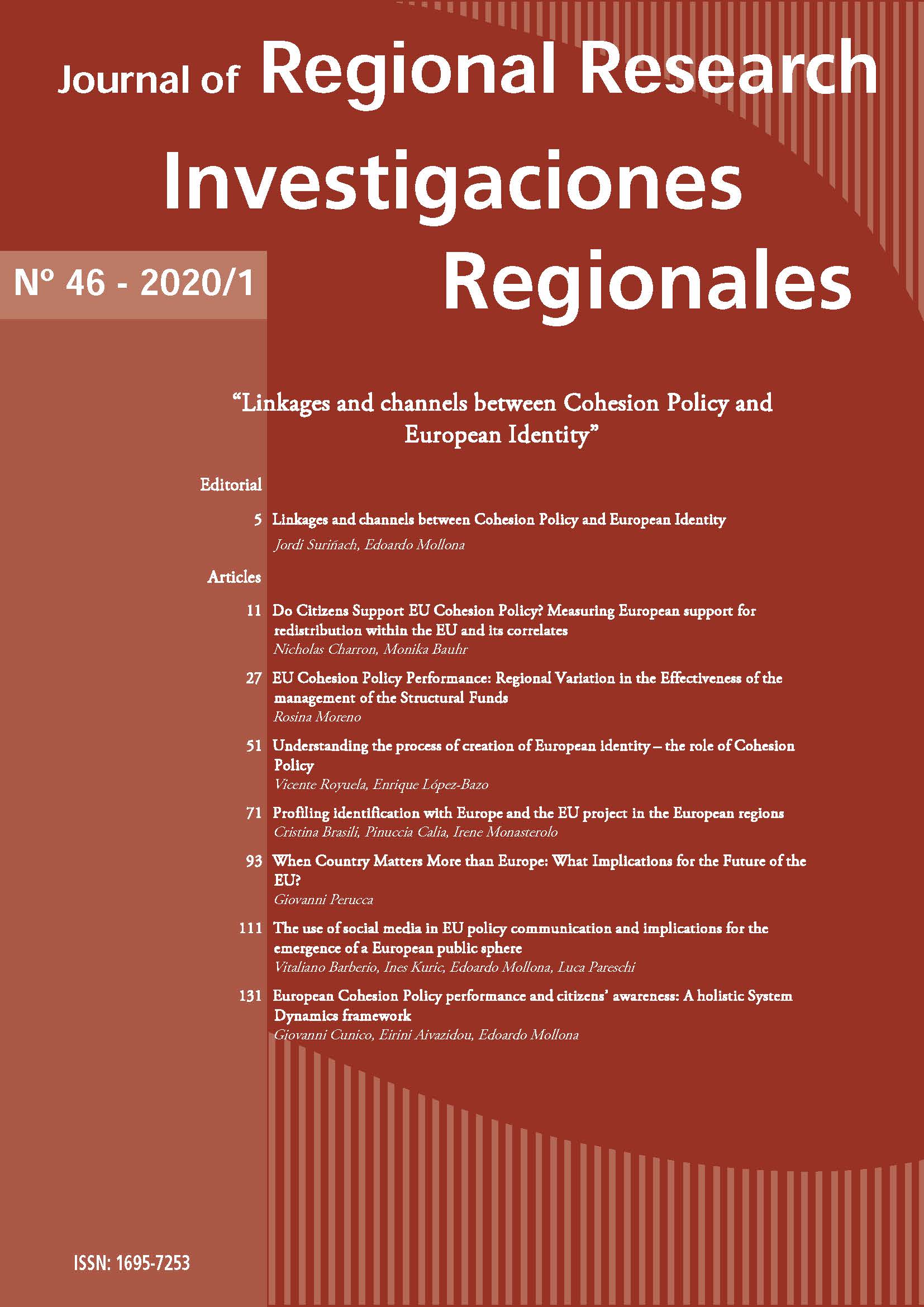Profiling identification with Europe and the EU project in the European regions
DOI:
https://doi.org/10.38191/iirr-jorr.20.004Resumen
Recent political events in the European Union (EU) highlighted a growing dissatisfaction of citizens in several EU regions with the EU institutions’ management of socio-economic and financial challenges. This eventually led to a political legitimization crisis, whose drivers are partially shared among EU regions and partially area-specific. However, the relation between citizens’ identification with the EU project and the regions’ characteristics has not been analysed yet. In this article, we fill in this gap by addressing tree research questions: i) To what extent do EU citizens identify with Europe and the EU project? ii) Do European regions have different patterns and level of identification?, and iii) Are the results driven by specific socio-economic variables?
Answering these questions is crucial to inform a more inclusive and resilient design of the EU Cohesion Policy in a crucial period for reforming the EU. To this purpose, we develop a novel probabilistic classification model, IdentEU, which embeds with the concept of individual identification with Europe. We use micro-level data from a survey implemented within the PERCEIVE project. We find that the influencing variables that mostly affect (citizens and) regions’ identification with the European project are trust in the EU institutions; the effectiveness of EU Cohesion Policy and spending; the level of corruption. These issues gain relevance at the light of three main challenges that affected the EU socio-economic development path in the last decade, i.e. the 2008 financial crisis, the globalization process, and Brexit.
Descargas
Publicado
Número
Sección
Licencia
Aquellos autores/as que tengan publicaciones con esta revista, aceptan los términos siguientes:
En el momento de aceptar la publicación de sus artículos en Investigaciones Regionales / Journal of Regional Research, los autores acceden a utilizar la licencia Creative Commons CC BY-NC. IIRR/JRR es una revista abierta que permite a los autores retener el máximo control sobre su trabajo. Los autores aceptarán utilizar la licencia Creative Commons Attribution-NonCommercial. Esta licencia permite a cualquier persona copiar y distribuir el artículo con propósitos no comerciales, siempre y cuando se atribuya adecuadamente la atribución del trabajo a la revista y a los autores.


